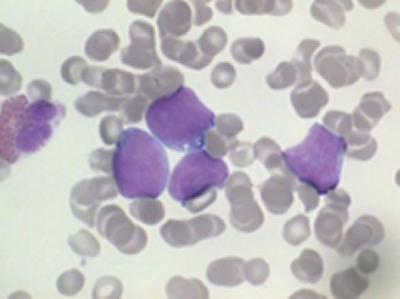Southampton scientists awarded £1.3 million for cancer research

A £1.3 million grant has been awarded to a team of scientists at the University of Southampton and Salisbury District Hospital, by the charity Leukaemia & Lymphoma Research, to improve diagnosis and treatments for blood cancer patients.
Professor Nick Cross, Professor of Human Genetics and Director of the Wessex Regional Genetics Laboratory, is leading the five-year project looking at a group of blood disorders called myeloproliferative neoplasms (MPN). In particular, the project will improve understanding of how the disorders develop into leukaemia and how they can be treated.
MPN cause a breakdown in the regulation of normal blood cell production – too many blood cells are created, meaning the blood can become thick. Some subtypes have a high likelihood of progressing to full-blown leukaemia, whereas for other subtypes progression to leukaemia is uncommon.
Around 3,300 people are diagnosed with MPN in the UK every year and most people who develop it are aged 50 and over.
There are a variety of symptoms, including fatigue, blood clots, bleeding and bruising. The disorders develop gradually and many patients often experience mild or even no symptoms at first.
Professor Cross said: “We have worked for a number of years looking at these blood disorders and have identified several important genes that contribute to the development of the diseases. The new technology now available will provide a much more in depth analysis of all genes.”
Using state-of-the-art technology known as next-generation DNA sequencing, the researchers will study the genetic changes that occur within cells that lead to leukaemia. Using this information, they will develop new drugs targeted at specific molecular faults to seek out and destroy MPN cells in the blood.
Dr Matt Kaiser, Head of Research at Leukaemia & Lymphoma Research, said: “At the moment, there are no curative treatments for myeloproliferative neoplasms and we need to know more about the biology of high and low risk disease. Research is vital because the more we understand the disease’s development, the more help we can provide to enhance treatment options and provide smarter diagnosis for patients.”